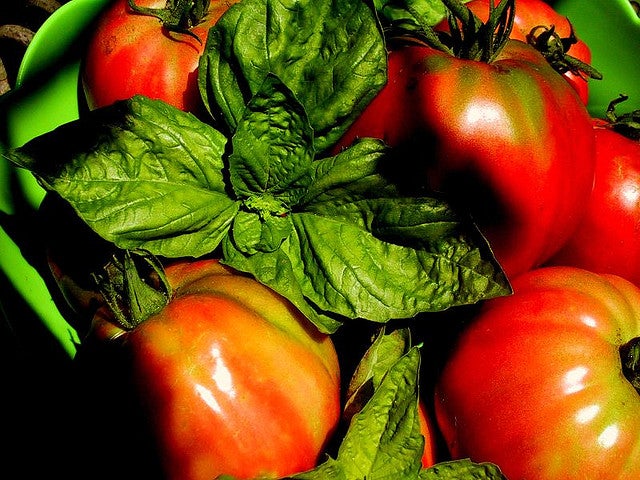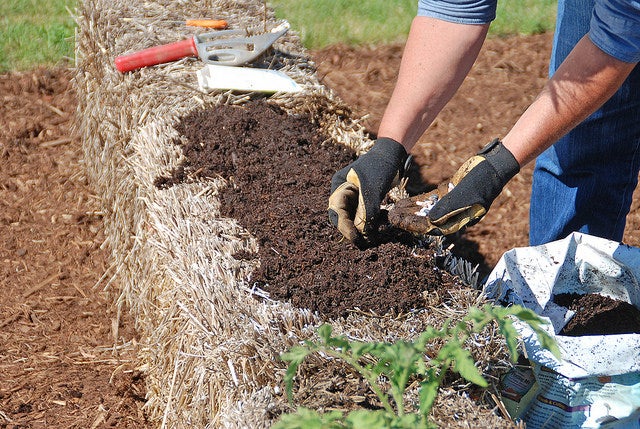It’s been a cool, cloudy, and wet summer. Today on Garden Talk, Larry Meiller finds out whether that will impact plants that love hot, sunny weather.
Featured in this Show
-
Cool Summer Is No Problem For Vegetable Gardens
The first half of the summer has been a little cooler than people might have expected, but that doesn’t mean that garden plants are suffering.
“At least in the Madison area, these temperatures are ideal for most gardeners,” said Karen Johannsen, who has worked for many years in her family’s business, Johannsen’s Greenhouses in Madison.
Just like people, plants have a range of temperatures that they thrive in.
“For tomatoes and peppers, their ideal daytime temperatures run from about 70 to 85 (degrees),” Johannsen said. She added that those plants should also be fine at night, so long as temperatures don’t dip below 55 degrees.
For gardeners a little farther north, Johannsen said, there may be a chance of nighttime temperatures hitting or dropping below the 55-degree threshold. In that case, she said, there could be problems with pollination and the fruit set.
But given current conditions around the state, “tomatoes and peppers should be doing great,” she said.
Johannsen said that not only has there been great weather for growing vegetables, but conditions have been wonderful for a variety of other garden activities, too.
“It’s also been excellent for transplanting things, for sowing grass seed, for moving nursery stock,” she said. “My garden is going gangbusters!”
-
Food, Water Are Key For All Flowers, Veggies, Ornamentals, Garden Expert Says
Memories of a wet June might be misleading gardeners, according to a Wisconsin gardening expert.
Karen Johannsen, who worked for many years in her family’s business, Johannsen’s Greenhouses in Madison, said that this summer has become progressively drier — with those conditions affecting many gardeners’ plants, flowers and vegetables.
“We really haven’t had much rain in the last couple of weeks,” she said.
Newer trees and shrubs need close monitoring for moisture, and new perennial flowers do as well. With the recent lack of rain, “you may need to do some good heavy soakings,” Johannsen said.
For nursery stock, Johannsen recommends a weekly soaking of a ½ to 1 inch of water. Perennials might need a daily watering right after planting, she said.
This summer cooler temperatures have been a boon for new plantings, she said, because it’s really reduced the transplant stress that is so common.
Water is vital for plants and so is food. Johannsen said that “fertilizing is so important, especially as we get into the end of July.”
Different plants — and different plant locations — have different fertilization needs. According to Johannsen, plants in containers “are going to be the hungriest because you’re watering constantly, and nitrogen leaches out every time you water.” Her recommendation for fertilizing container plants is at least once with a water-soluble food. If it’s warm and they need watering every day, then plan to feed twice a week.
Annual plants, whether flowers or vegetables, that are planted in the garden soil will benefit from feeding with a water-soluble food every two weeks, Johannsen said. If it’s a granular fertilizer that is slow-release, those applications are generally spread four to six weeks apart.
Perennials, on the other hand, don’t need as much feeding. Johannsen said that in general, once a season is enough.
“If you fertilized your perennials in the spring,” she said, “unless they’re showing signs of nutrition deficiency, you should be good to go.”
In addition, she cautioned against feeding perennials much after the middle of August because it isn’t good to encourage “tender growth” at that point in the season.
Episode Credits
- Larry Meiller Host
- Judith Siers-Poisson Producer
- Karen Johannsen Guest
Wisconsin Public Radio, © Copyright 2025, Board of Regents of the University of Wisconsin System and Wisconsin Educational Communications Board.

